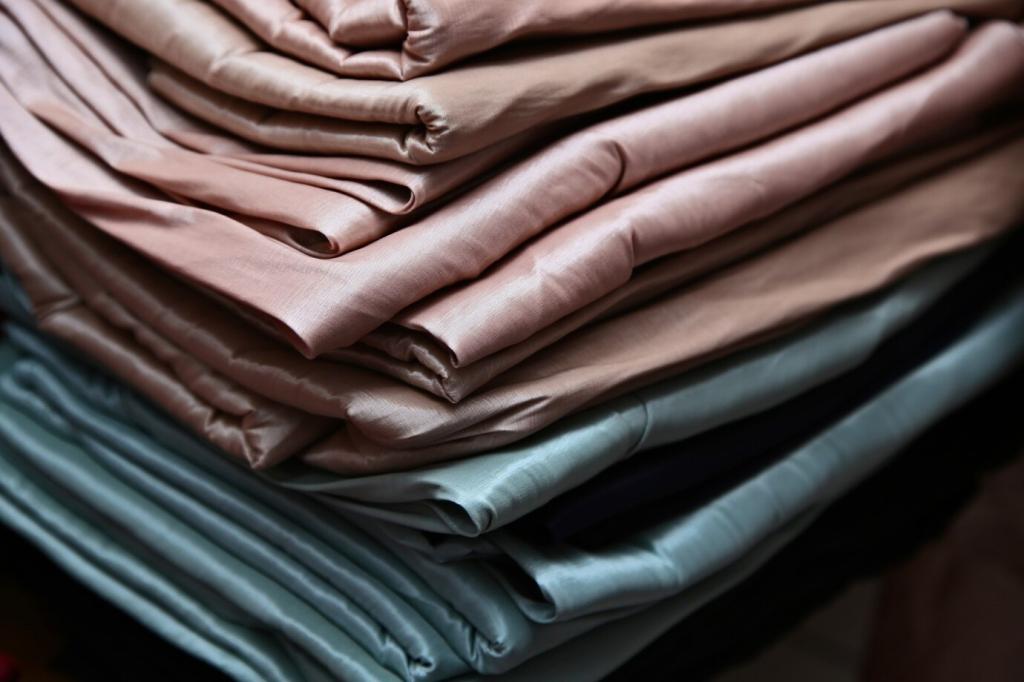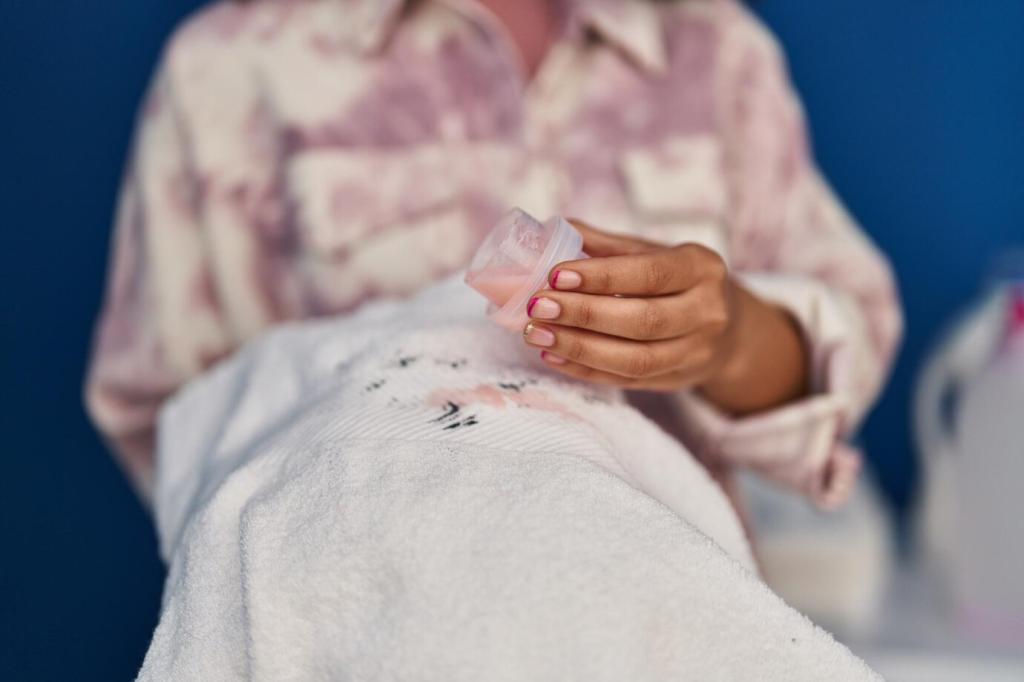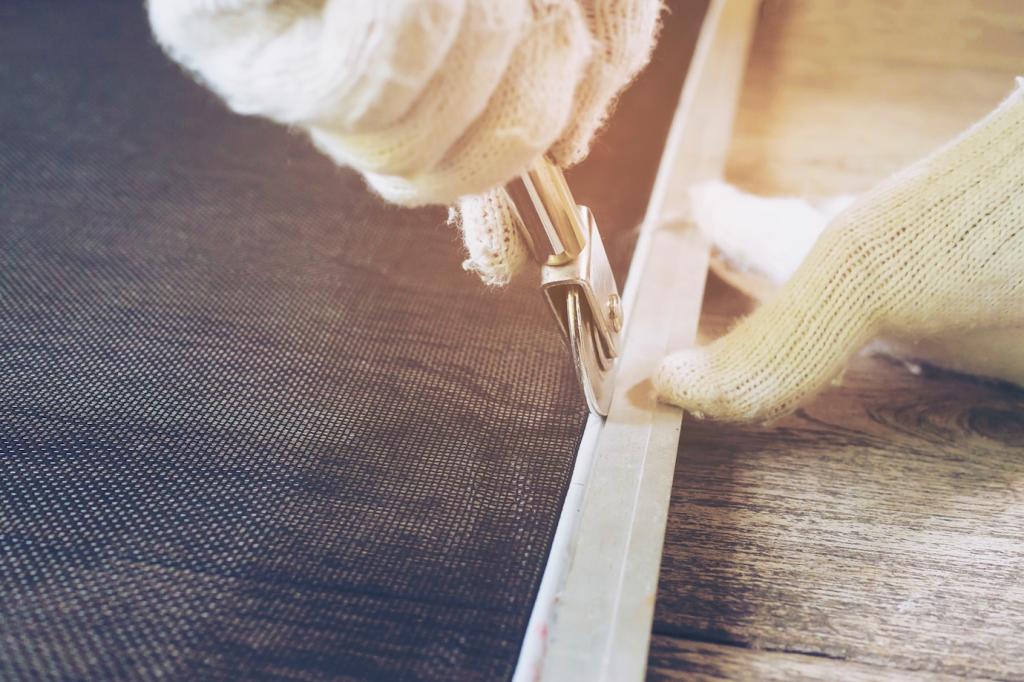Chosen theme: Frequency of Washing Silk Bedding. Discover a gentle, science-backed rhythm for keeping silk sheets fresh without shortening their lifespan. Stay for practical schedules, real-life stories, and dermatologist tips—then tell us your routine and subscribe for more silk-smart insights.
Silk’s Protein Fibers and Why Frequency Matters
Silk is made of fibroin, a delicate protein that dislikes harsh agitation and heat. Washing too often can roughen fibers, dull sheen, and weaken seams, while under-washing allows oils to oxidize. Finding a balanced interval protects shine and keeps your sleep surface genuinely clean.
Dermatologist Perspective on Skin and Sheets
Skin sheds cells and secretes sebum every night, but silk wicks less moisture than cotton. Many dermatologists suggest washing silk pillowcases weekly and sheets every one to two weeks, adjusting for acne, allergies, or hot climates. Share your skin concerns, and we’ll tailor cadence tips.
Personal Factors That Set Your Washing Cadence
Skin Type, Hair Products, and Night Routines
Oily skin, leave-in conditioners, and heavy night creams increase residue transfer to silk, shortening the time between washes. If you cleanse before bed and keep products light, you can stretch days safely. Tell us your nighttime ritual so we can suggest a personalized cadence.
Allergies, Pets, and Sensitivities
Seasonal allergies, dust sensitivity, and pets sleeping on the bed often mean a weekly wash for pillowcases and a 7–10 day cycle for sheets. If symptoms flare, tighten the schedule. Pet owners: do you notice more lint or dander? Share your experience and adjustments.
Sweat, Exercise, and Warm Sleepers
After late workouts or on heatwave nights, sweat can accumulate faster than expected. Warm sleepers benefit from washing pillowcases every 3–5 nights and sheets weekly. Cooler sleepers can extend to biweekly. Try logging sweatier nights to fine-tune your wash rhythm and report back.
A Practical Washing Schedule You Can Keep
Use this balanced baseline: pillowcases weekly; fitted and flat sheets every 10–14 days. Tighten to 7–10 days in summer, loosen to 14–21 in cool, dry seasons. Mark recurring reminders, and subscribe to get seasonal checklists tailored to silk-specific care.
A Practical Washing Schedule You Can Keep
Keep two to three silk pillowcase pairs and rotate midweek, delaying full-sheet laundering. A breathable top sheet or silk duvet cover adds a protective layer. Tell us which rotations you try, and we’ll feature reader-tested combinations in our next update.


Telltale Signs It’s Time to Wash Silk Bedding
Silk starts to look slightly matte and feel less glidey when oils accumulate. If your cheek doesn’t slip across the pillow as effortlessly, or the fabric looks hazy under daylight, it’s time to refresh. Notice these changes? Comment with your before-and-after impressions.
A faint stale or sweet-sour scent hints at oxidized sebum. New breakouts along the hairline or cheek can also indicate overdue washing. Track any flare-ups for a week and compare against your laundering frequency to fine-tune the interval that keeps skin happiest.
Scratchy eyes or morning sneezes may rise as dust and pollen collect. If symptoms appear sooner than expected, shorten your cycle by a few days. Tell us which signs you notice first, and subscribe for allergy-season frequency tweaks and cleaning checklists.



Sustainable Ways to Stretch Time Between Washes
A quick face cleanse, dry hair, and light, non-comedogenic products reduce transfer to silk dramatically. Even a sixty-second rinse after workouts helps. Try this for a week, note any difference in freshness, and share your results to guide other readers.
Sustainable Ways to Stretch Time Between Washes
Pull back the duvet each morning to let trapped moisture evaporate. A brief, cool, fabric-friendly spritz can neutralize light odors without soaking silk. These micro-habits extend your frequency safely and reduce water use. Subscribe for printable daily refresh checklists.
Join our mailing list
